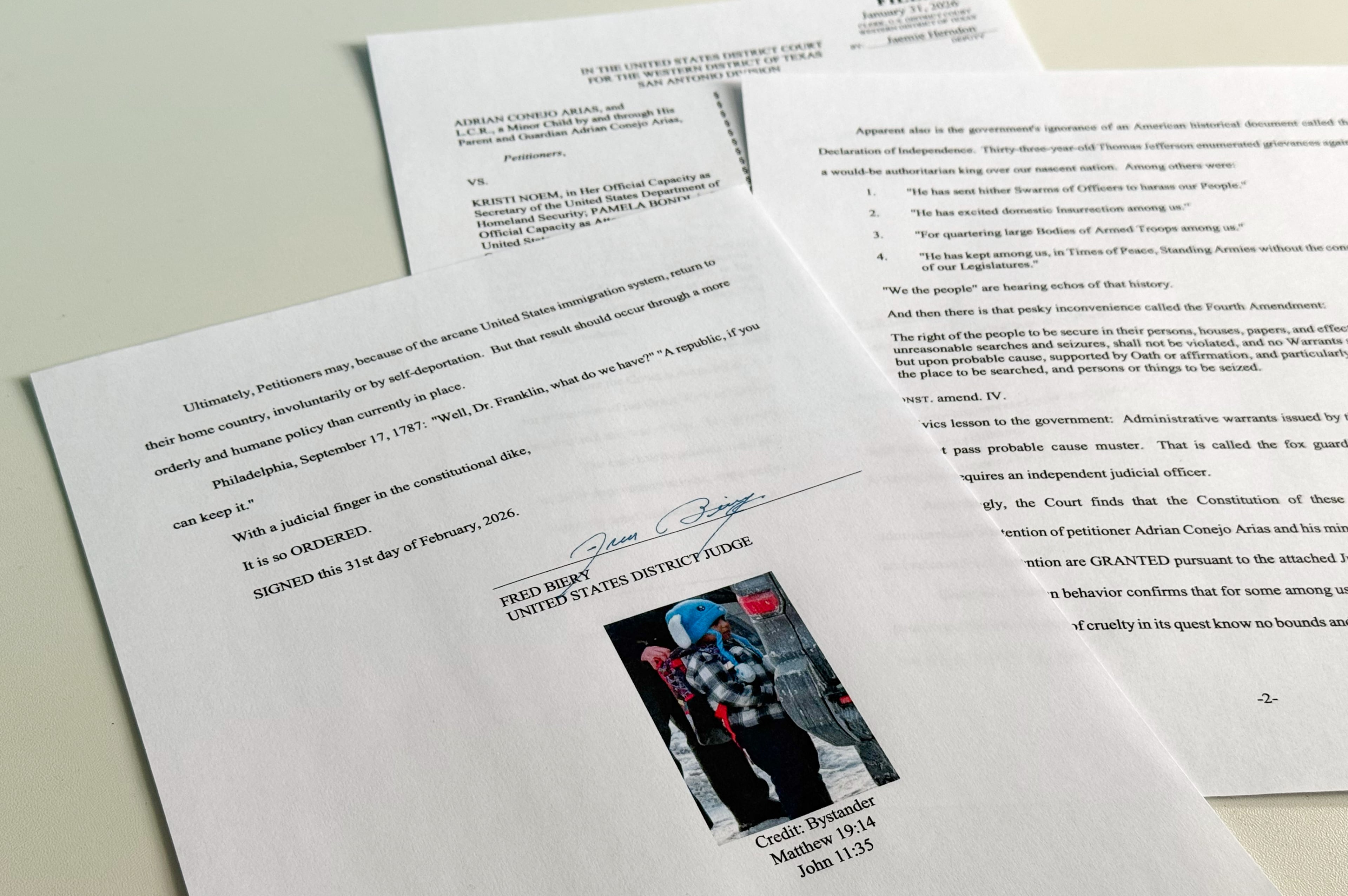Hispanic journalist’s detention exposes risks facing small independent media

In Atlanta, Georgia, journalist Mario Guevara has become a polarizing figure. Known for his unique style of informing hundreds of thousands of social media followers about immigration raids, he draws both praise as a migrant defender and criticism for his editorial approach that sometimes favors the current administration.
Whether admired or criticized, authorities are not judging him for his polarizing positions. Initially accused of obstruction and unlawful assembly, additional charges were filed while detained: reckless driving, recording while driving and running a red light. All charges have been dismissed.
I first met Guevara in early 2004 at Atlanta Latino, the publication I co-founded. Recently arrived from El Salvador, he had worked as a photojournalist for La Prensa Gráfica, facing constant threats against himself and his family. Twenty years later, he faces the worst crisis of his life.
We had planned to meet in late June. “My goal is to become a national media outlet. Let me know when you get to Atlanta,” read his last message on June 11. Three days later, he was arrested while covering a demonstration against Immigration and Customs Enforcement (ICE), which continues to hold him.
On July 1, an immigration judge granted him bail. However, ICE immediately filed a stay and appeal, preventing his release. Guevara’s attorneys allege procedural violations, claiming ICE failed to provide timely notification of the stay filing and exercised administrative discretion to reject bail payment despite the judicial order. They have formally requested that the Board of Immigration Appeals dismiss ICE’s appeal.
Guevara faces delays from authorities and threats from inmates
Mario currently lacks definitive legal immigration status but holds work authorization and maintains a viable legal process for permanent residence.

His legal representatives have made public allegations of apparent inter-institutional collusion and an extortion incident.
The defense presents a hypothesis of deliberate coordination between ICE and Gwinnett County authorities to unduly prolong Guevara’s detention, based on his transfer to jail under minor traffic charges that were subsequently dismissed.
According to attorneys, while in Gwinnett custody, authorities executed a judicial order to seize and examine Guevara’s mobile device, which the defense considers part of a coordinated pattern of procedural delay.
Additionally, inmates used unauthorized mobile devices to photograph the detainee, sending images to his wife with threats and economic demands. Guevara was transferred to another detention center 36 hours later.
Mario Guevara’s case presents complex elements at the intersection of immigration law, press freedom and due process. The allegations of inter-institutional coordination to delay detention, along with security incidents during custody, reveal structural deficiencies in high-profile immigration cases.
Independent journalists lack institutional support and resources
This case constitutes a precedent of relevance and demonstrates systemic vulnerabilities that communicators face. These circumstances should be analyzed not as isolated incidents, but as practices that can be systematically replicated against journalism professionals, particularly those lacking institutional protection and legal resources that characterize large media corporations.
Press freedom defense organizations must redefine their intervention strategies beyond issuing public statements. The Guevara case demonstrates that independent journalists and those from media outlets with limited resources require effective legal protection mechanisms, including specialized legal assistance and emergency funds for bail requirements.
The disparity in access to legal defense resources between journalists from large media conglomerates and independent communicators creates differentiated vulnerability that professional institutions must address through proactive legal assistance programs.
Without effective protection structures and adequate defense resources, any journalist from an independent media outlet could find him or herself in a similar situation, lacking the institutional capacity to face complex legal processes.
Tomorrow it could be you or me.
José Luis Castillo is the founder and editorial director of La Esquina TX, based in Houston, Texas. He was cofounder and editor-in-chief of the now-extinct bilingual weekly Atlanta Latino based in Norcross, Georgia.


